Prince Albert II of Monaco © Michael Alesi / Palais Princier
The European Union (EU) and the trio of Andorra, Monaco and San Marino – the so-called AMS states – have a long and complex history of relations which the Council of the European Union has described as “extensive but fragmented”. Over the years, they have stitched together a quilt of agreements based on practical needs and mutual benefits. However, this quilt is getting old and worn out and does not cover the AMS states’ desire for greater integration with the EU. Nor does it match the EU’s vision of a coherent and harmonious relationship with its western neighbours. On March 18, 2015, the EU and Monaco formally launched negotiations on an Association Agreement. The talks were held in Brussels, Belgium, and were attended by Prince Albert II of Monaco and his then-Minister of State (Prime Minister), Michel Roger.
Since then, both sides have been trying to sew a new fabric of association, and although the process is not yet complete, important steps have been taken towards that goal. A final agreement would represent a far-reaching step, comparable only with the European Economic Area Agreement (EEA) that came into force in January 1994, and which brought Norway, Iceland and Liechtenstein into the EU single market.
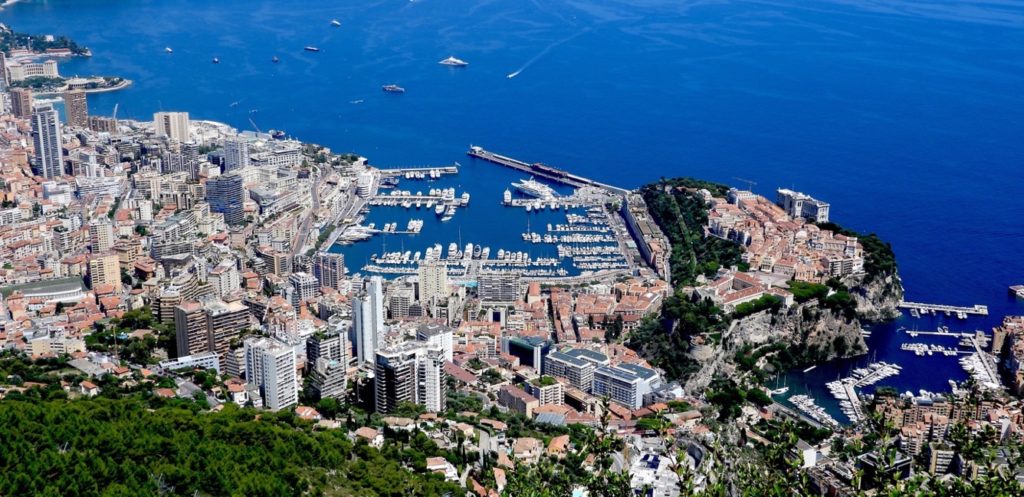
The links between the EU and the microstates are like a web of threads, each with its own colour and texture. To unravel this web, one must delve into the fascinating histories of these small nations and their connections to the EU. One of the most important threads is history, sometimes mixed with geography. For example, it is not easy to understand the links between the EU and Andorra without knowing how Andorra came into being and why this patch of land in the middle of the Pyrenees is neither part of France nor Spain nor the EU.
However, there is also a common thread that links all microstates: their special bond with their closest neighbours. This often explains how they have managed to survive and maintain their identity. But at the same time, this commonality also makes it difficult to draw a general picture of them.
For centuries, Europe was a mosaic of small states, each with its own identity and culture. Some of these miniature states, such as Andorra, Liechtenstein, Monaco and San Marino, still grace the map today. What makes them so fascinating is the paradox of their survival. While powerful empires have come and gone, microstates have somehow survived despite scarce land and resources. How? Because they have understood how to adapt to the changing times.
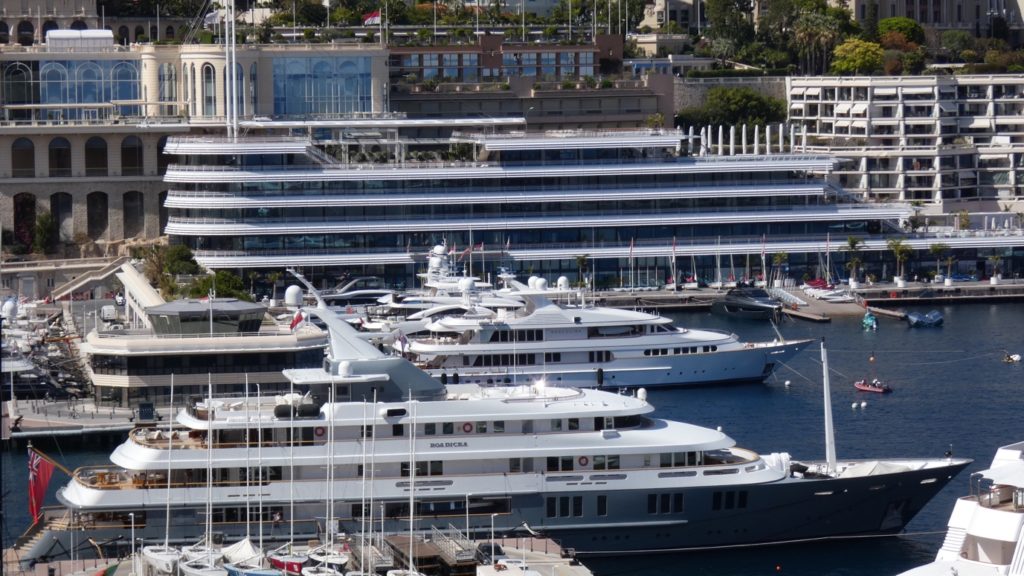
To compensate for their smaller economic power and make up for the wide gap with larger states, successful microstates have consistently focused their economies on a few select sectors, leaving behind others that were less important or profitable. The big challenge they face today is deciding which economic sectors to focus on in the future. Only if they have a clear economic vision will they find a modern and dynamic economic and political raison d’être.
| Monaco at the forefront
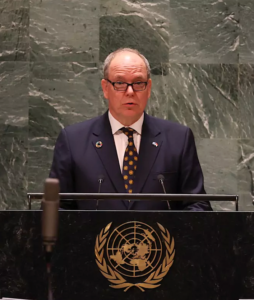
Monaco has a more special and complex relationship with the EU than the other microstates, and faces different challenges and opportunities in its negotiations with the EU. It is the only such state that uses the euro as its official currency due to a monetary agreement with the EU, while the other microstates use their own or other currencies, such as the Swiss franc in Liechtenstein.
Monaco is also the only small state that is part of the EU customs territory through an agreement with France and is administered as part of France for customs purposes. The other small states have their own customs regimes or are in a customs union with the EU, such as Andorra and San Marino.
Monaco has an open border with France and is administered as part of France under the Schengen Agreement, while the other small states have their own border controls or are full members of the Schengen area, like Liechtenstein.
Of considerable significance is the fact that Monaco is a member of the United Nations and the Council of Europe, as well as a member of the Organisation Internationale de la Francophonie, an 88-member international organisation representing countries and regions where French is a lingua franca.
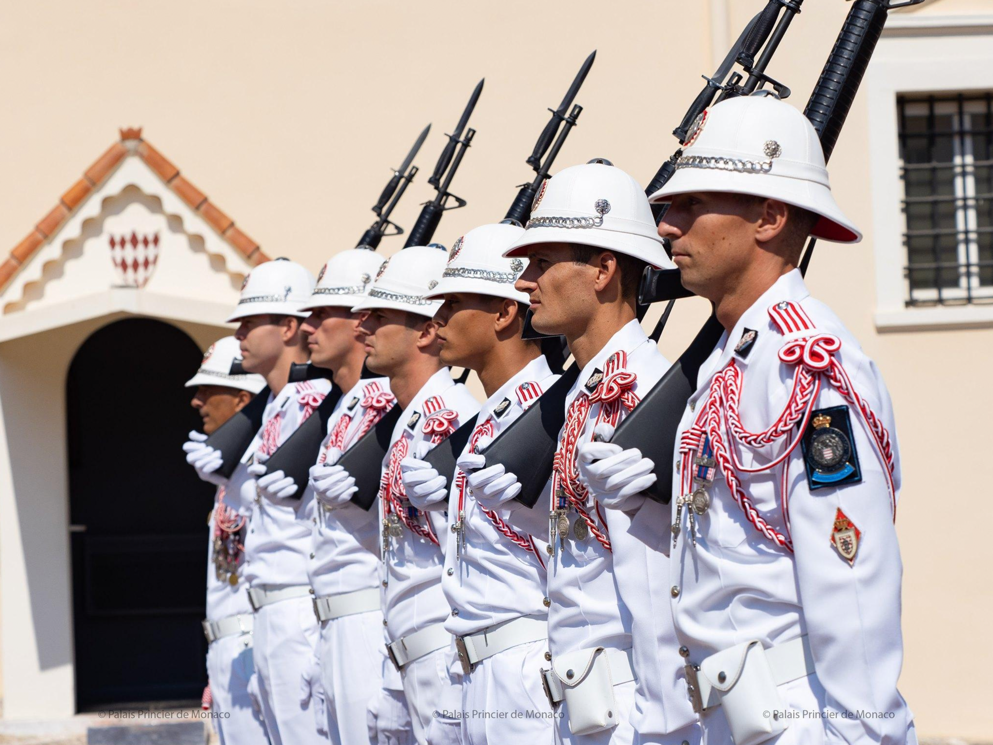
A constitutional monarchy, the state has been ruled by the House of Grimaldi since 1297. It has a bicameral National Council (Parliament) and a Minister of State (Prime Minister) appointed by the Prince of Monaco, currently Prince Albert II. He has absolute power in matters of foreign policy, but shares power with the National Council in matters of domestic policy.
The European Union and the Principality of Monaco are like-minded, close neighbours, sharing a common history, culture and language, and have signed several very important cooperation agreements. These allow Monaco to adapt its policies to certain EU rules and to benefit from certain economic privileges that correspond to the Principality’s specific circumstances and governmental structure.
Monaco is known for its status as a tax haven. It levies no income tax on individuals (with the exception of French nationals who have lived in Monaco for less than five years), and no capital gains tax. This favourable fiscal environment attracts high-net-worth individuals, entrepreneurs and companies looking to benefit from low taxation.
Monaco also enjoys a high degree of economic stability. Its small size, well-regulated financial sector and prudent fiscal policies contribute to a favourable business environment. The Principality has AAA credit rating and low public debt, which boost the confidence of investors and companies operating in Monaco.


However, the relationship between Monaco and the EU is not as comprehensive and as homogeneous as it could be and there are still some areas where Monaco does not fully align with EU rules and standards, such as taxation, financial services and data protection. Therefore, since 2015, Monaco and the EU have been negotiating a new Association Agreement that should cover all these areas and create a more stable and coherent framework for their cooperation.
| The thorny issues
Monaco’s status as a tax haven has brought both benefits and challenges to its aspirations for deeper integration into the European Union. This status has, of course, contributed significantly to the country’s economic prosperity and the absence of an income tax on individuals as well as the favourable tax treatment of companies have attracted wealthy individuals, entrepreneurs and businesses to settle in Monaco. This has boosted economic growth, created employment opportunities and considerably increased the Principality’s revenues.
Monaco is also a hub for financial services, including private banking, wealth management, and investment services. The presence of financial institutions and professionals has further strengthened Monaco’s position as an international financial centre.
The numbers of foreign visitors to Monaco is of major importance. The country’s reputation as a tax haven and its association with wealth and luxury attracts tourists from all over the world. The tourism industry is thriving as foreign visitors are drawn to Monaco’s glamorous lifestyle, casinos, yachts and world-class shopping.
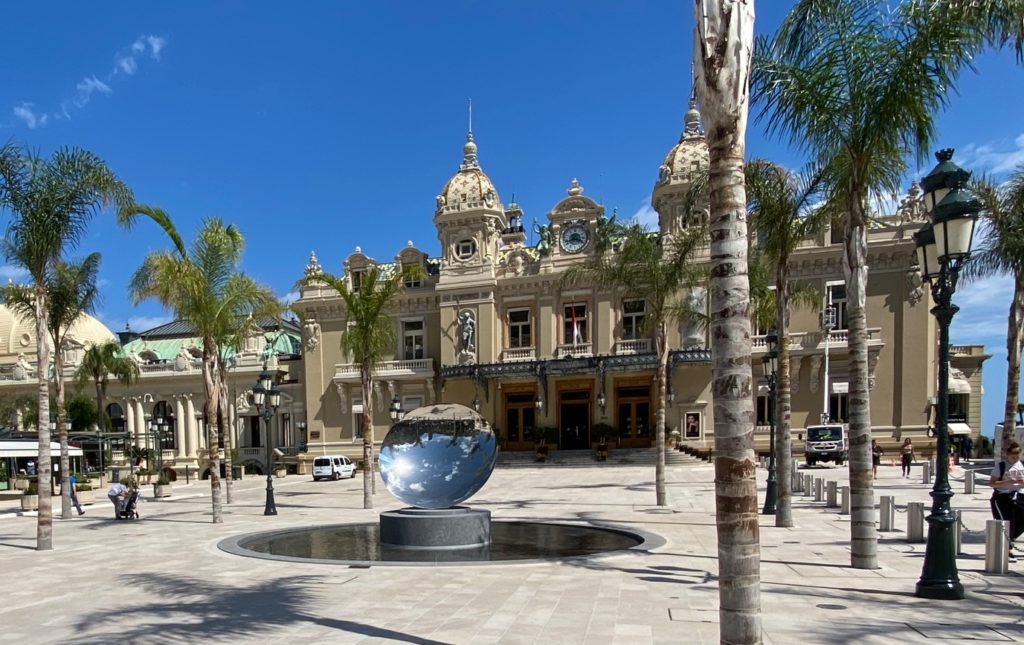
But Monaco’s advantageous income tax regime may also attract companies and individuals looking to minimize their tax obligations in their home countries. Other than leading to an outflow of capital and talent from other countries and impacting their economies and tax revenues, Monaco’s status as a tax haven has also drawn criticism from international organisations and some countries for facilitating tax evasion, money laundering and a lack of transparency in financial transactions.
All in all, this situation has been putting pressure on Monaco to improve its legal framework so that it can address these concerns.
One of the EU’s main goals in the talks is to make sure that Monaco implements the same standards of protection against money laundering and terrorist financing as the EU, and that it follows the Union’s rules and guidelines on these issues. The EU also wants Monaco to adopt Moneyval’s suggestions and to show its dedication to combat financial crime.
Moneyval is a specialized body within the Council of Europe that assesses the compliance of member states with international standards on anti-money laundering (AML) and countering the financing of terrorism (CFT). Its evaluations aim to ensure that countries, including those in the EU have robust frameworks in place to combat illicit financial activities.
Moneyval’s evaluation process involves a comprehensive review of a country’s legal and regulatory framework, the effectiveness of its institutions and measures, and the level of cooperation in international efforts to combat money laundering and terrorist financing.
The evaluation is based on the recommendations of the Financial Action Task Force (FATF), which are considered the global standard in this field.

As a member of the Council of Europe, Monaco has been subject to five rounds of evaluation since 2002. The latest evaluation report was adopted in December 2022, and it found that Monaco had made some progress in strengthening its legal and institutional framework to prevent and combat money laundering and terrorist financing, but it also identified some deficiencies and challenges that needed to be addressed.
These are some of the main recommendations that Moneyval has made to Monaco:
- To further enhance the effectiveness of its investigation and prosecution of money laundering, especially for complex and cross-border cases, and to increase the use of confiscation and recovery of proceeds of crime.
- To strengthen its supervisory system for financial institutions and designated non-financial businesses and professions, such as casinos, lawyers, accountants, real estate agents, etc., and to ensure that they apply adequate preventive measures and report suspicious transactions.
- To improve its international cooperation with other countries, especially within the European Union, and to exchange information and provide mutual legal assistance in a timely and effective manner.
However, in the course of several debates, parliamentarians have raised some objections regarding the assessment of Moneyval and other EU requirements in terms of wider participation in the EU single market and other areas.
Specifically, Monaco claims that it has already implemented most of Moneyval’s recommendations and that it has a robust anti-money laundering and counter-terrorist financing regime comparable to or even better than that of some EU member states. It also argues that some of Moneyval’s recommendations are not applicable or relevant to its specific situation, such as its small size, its constitutional monarchical system, its civil law tradition, etc.
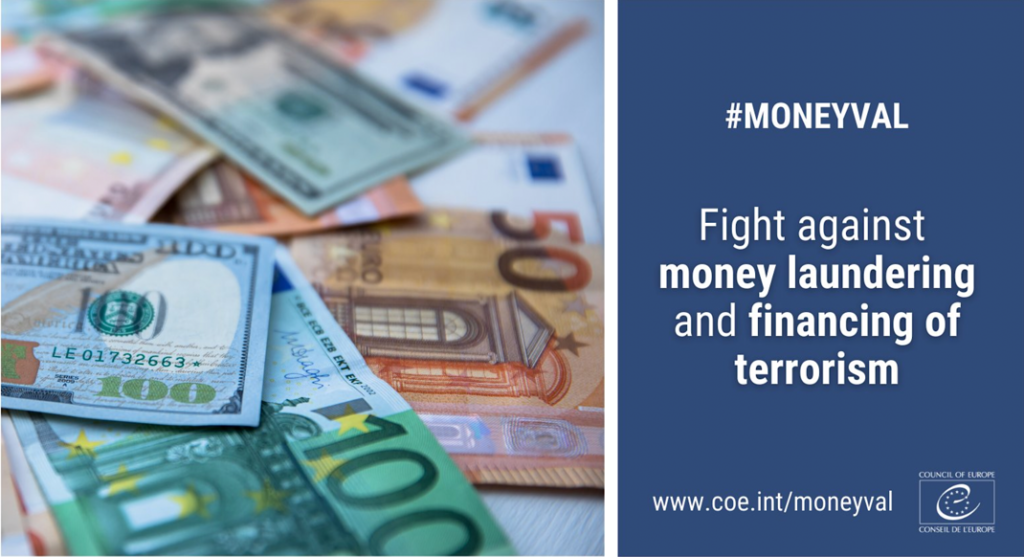
Monaco has also expressed concern about the possible impact of an Association Agreement on its economy and society, in particular on its financial sector, which is one of its main sources of revenue. Some are worried that an Association Agreement would expose it to greater competition from other financial centres in the EU or elsewhere and reduce its attractiveness to investors or clients. Monaco also harbours fears that an association agreement would bring more costs than benefits to its public finances or services.
| Priorities and perspectives
The aim of the agreement is to allow Monaco to participate more fully in the EU’s internal market, taking into account the Principality’s unique geographical, demographic and economic characteristics. Discussions have been ongoing for over eight years, have been characterised by tough negotiating tactics and have presented a number of important challenges.
One of these, and not the least, has been the need to reconcile the interests of the EU and Monaco. The EU wants to ensure that Monaco complies with all its laws and regulations, while Monaco wants to preserve its sovereignty and its right to manage its own affairs.
Another challenge was the need to find a way to address Monaco’s specific concerns. One example is the limited labour force due to the country’s small size. It is therefore necessary to ensure that the agreement does not lead to unfair competition for Monegasque companies.
But despite the challenges, the negotiations have made some progress. In 2018, the EU and Monaco concluded an agreement on the free movement of goods. This means that goods produced in Monaco can be freely traded within the EU. The two sides are also working on agreements on the free movement of services, capital and people.
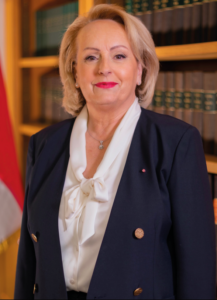
Monaco’s sovereignty and its ability to act independently of the European Union are of great importance to the Monegasque people. Monaco has a long history of maintaining its independence and sovereignty as a principality. The Monegasque people feel very attached to their unique identity and value their ability to make independent decisions.
Therefore, it came as no surprise when in January 2023, Brigitte Boccone-Pagès, the president of the National Council (parliament), and leader of the Monegasque National Union Party (UNM) declared: ‘The question is not “yes or no to Europe” …it is not even a question of “yes or no to an agreement”, which is only a tool’. And she added with a dash of flamboyance: ‘The UNM will not sell off our model…I guarantee it!’.
One of the pillars of the model in question, to which crucial importance is attached, is the so-called national priority. This is a policy to promote the employment and recruitment of Monegasque citizens in the Principality. It is based on the principle that Monegasque nationals have priority in filling vacancies.
It should be noted that national primacy does not mean that foreign workers are completely excluded. Monaco is a cosmopolitan country that attracts many foreigners and workers from abroad. However, the policy aims to strike a balance between employment opportunities for Monegasque citizens and the preservation of the identity and interests of the local population.
And, of course, there is a concern that bringing Monegasque labour market regulations more in line with EU standards could affect the implementation of national priority policies by limiting the possibility of preferential treatment for Monegasque citizens in employment, housing, health care and other areas.
While negotiations have accelerated this year and there is hope, especially on the European side, that they can be concluded before the end of 2023 and before the European elections in 2024, the Princely Government has commissioned a prospective study on the consequences for the Principality of an agreement or failure of the talks.
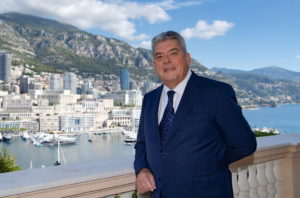
Pierre Dartout, Monaco’s Minister of State (Prime Minister), while making clear his determination to forge ahead with the ongoing talks, warned at a press conference in August that Monaco would not put pen to paper at any cost. He acknowledged that the EU has its own policies and procedures, but that it is up to individual states to provide for and protect their citizens. He then went on to add: “I continue to believe that an agreement is necessary. The Principality cannot remain isolated, because an isolated territory will find it harder to diversify than others. Diversification of the economy is necessary here, and I would even say inevitable”.
However, the National Council, whose 24 seats were all won by the Monegasque National Union Party (UNM) in last February’s parliamentary elections, issued a press release in August, in which they made it known that the desirability of an agreement has not been proven. The communiqué read: “Pierre Dartout’s statement is, to say the least, surprising for several reasons” before proceeding to explain, “First of all, to say publicly to the partner with whom you are negotiating, that an agreement is necessary, is the best way, in our view, to place yourself in a position of weakness in the negotiations. The question therefore arises as to the appropriateness of this statement”.
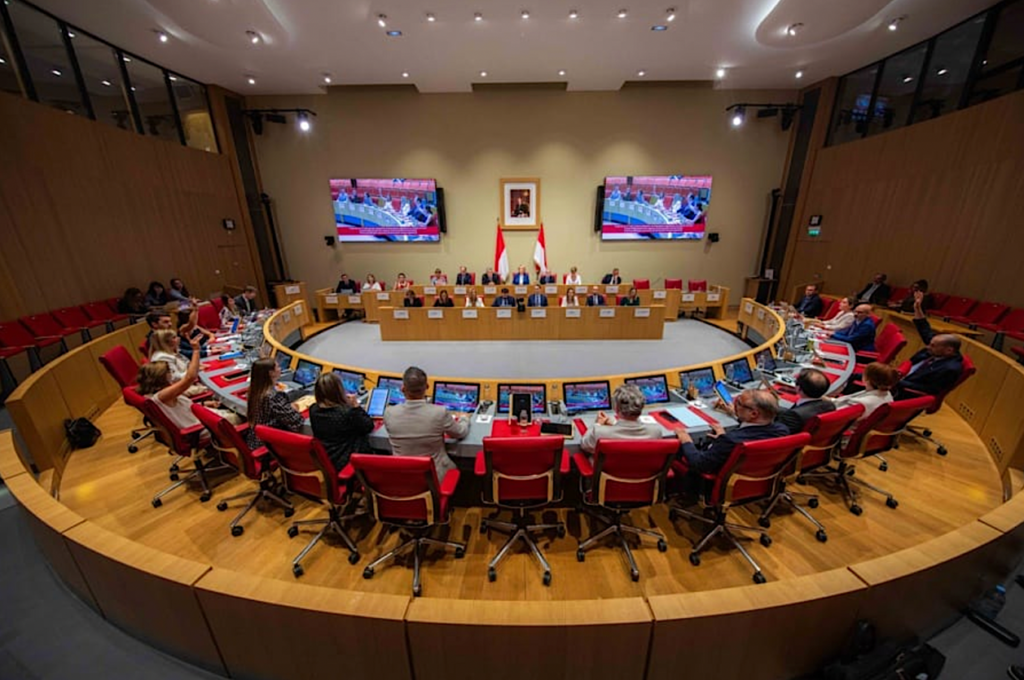
Secondly, the elected representatives once again pointed out that “any agreement will have to be the subject of a law that authorises such a ratification. This law must be put to a vote in the National Assembly, respecting the red lines, which as things stand, is far from certain”.
In short, the National Council wishes to carefully weigh up all the factors involved in the decision-making process, in which the advantages are decisive, compared to the concessions that Monaco will have to make.
| Negotiation breakdown
The persistence of fundamental disagreements between the two parties finally took its toll.
Following a meeting between Monegasque Foreign Minister Isabelle Berro-Amadei and European Commission Executive Vice-President, Maros Sefcovic in Brussels on 14 September, it was decided to suspend the negotiations. This decision effectively annuls the deadline of 31 December 2023, set by the EU at the beginning of the talks in 2015.
The two parties ultimately found themselves unable to reconcile the demands of the European Union with the red lines set out by Prince Albert II at the beginning of these talks, which aim to preserve the current living, working and housing conditions of the Principality’s nationals and residents.
Shortly after this announcement, the National Council released a statement recalling the scepticism of its elected representatives since 2018, while underlining its always firm position, which served as an encouragement to Monegasque negotiators not to give in. It described itself not as “anti-European” but as “Euro-pragmatic” and stressed the importance of preserving the Monegasque economic and social model, which includes a national priority for employment, housing and the creation of activities for Monegasques.
The National Council nevertheless encourages the government to continue the dialogue with the EU, with a view to possible future sectoral agreements that would not compromise the sustainability of the Monegasque model.
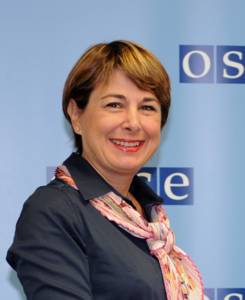

The suspension of the talks can be considered detrimental to both sides. The EU is eager to conclude a new agreement with Monaco, as it sees the country as a strategic partner in the region, and Monaco is also keen to reach a new agreement, as it is heavily reliant on the EU for trade and investment.
It has been stressed though that the suspension of the talks does not mean that the negotiations are over. Both sides have said that they are committed to reaching an agreement, and the talks are expected to resume at some point in the future.
| Renewed scrutiny
As for the fight against money laundering and the financing of terrorism, Prince Albert II and his government are determined to ultimately implement all recommendations so as to fully comply with international standards. To this end, the Monegasque government has enacted and updated laws and has taken steps to strengthen its regulatory institutions responsible for overseeing the financial sector. It has also adopted a risk-based approach to anti-money laundering measures.
However, a report published on 23 January 2023 by the Council of Europe’s Committee of Experts on the Evaluation of Anti-Money Laundering and Countering the Financing of Terrorism (Moneyval), has put Monaco and its financial sector under renewed scrutiny. The country was recently accused of protecting the assets of Russian oligarchs before complying with international sanctions against Russia.
According to the report, Monaco’s anti-money laundering efforts still have weaknesses and the country may be closely monitored by the Financial Action Task Force (FATF), the international financial watchdog. The report also warned that Monaco remains at risk of money laundering, mainly because of the “internationally oriented financial activities” it offers – and the Principality is an attractive destination for illicit cross-border financial flows.
The report said most fraud is committed outside Monaco, while the money from the crimes is laundered inside Monaco. The report added that risk assessments, international cooperation and the deterrent effect of sanctions are not fully sufficient to combat fraud and corruption risks.
The report notes that risks related to terrorist financing, which is also monitored by the FATF at the global level, are relatively low but need to be analysed more thoroughly by the Monegasque authorities. After the report was presented to the FATF plenary on 20 February, a one-year observation period was set for Monaco. If the country does not implement the required structural reforms, it can be publicly placed on a “grey list”. Monaco was on the grey list until it was removed from it in 2009.
The report however, also acknowledges that the Principality has made “commendable efforts” to assess risks, but points out that there is room for improvement, rating effectiveness as “moderate”.
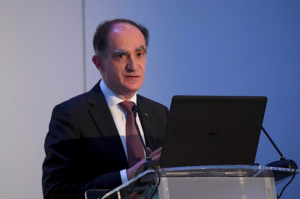
This assessment was confirmed by Jean Castellini, the Minister of Finance and Economy when he said in a TV interview on Monaco Info: “Improvements have to be made notably on Monaco’s capacity to expand its measures, to hire more people and to prioritise its actions better”. But while acknowledging advances that have been made in the meanwhile, particularly on the legislative front, he was also very keen to stress: “Team Monaco is well aware of the stakes” and promised: “Monaco will pass Moneyval’s most stringent tests in 2024”.
After the National Council (Parliament) issued a statement in which the lawmakers reiterated that they have played a significant role in the last five years to make sure that Monaco’s laws meet the top global standards, Minister of State, Pierre Dartout declared: “The Pricipality is in line with Prince Albert II’s vision of an exemplary Monaco in terms of ethics, transparency, the fight against money laundering and terrorist financing. This exemplarity is essential for Monaco in terms of its raison d’être and attractiveness. We will therefore continue and intensify our efforts.”
Many political analysts and economists are of the opinion that an Association Agreement, that takes into account the EU’s concerns, as well as Monaco’s priorities is important for both parties, as it would strengthen their political and economic relations, promote their common values and interests, and enhance their regional stability and security.

Such an agreement would also represent a significant step for Monaco’s economic resilience. While the short-term economic benefits may not be immediately visible, the long-term benefits would certainly underpin and stimulate Monaco’s economy, and secure its future in an increasingly interconnected, global landscape.
.

